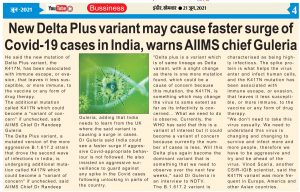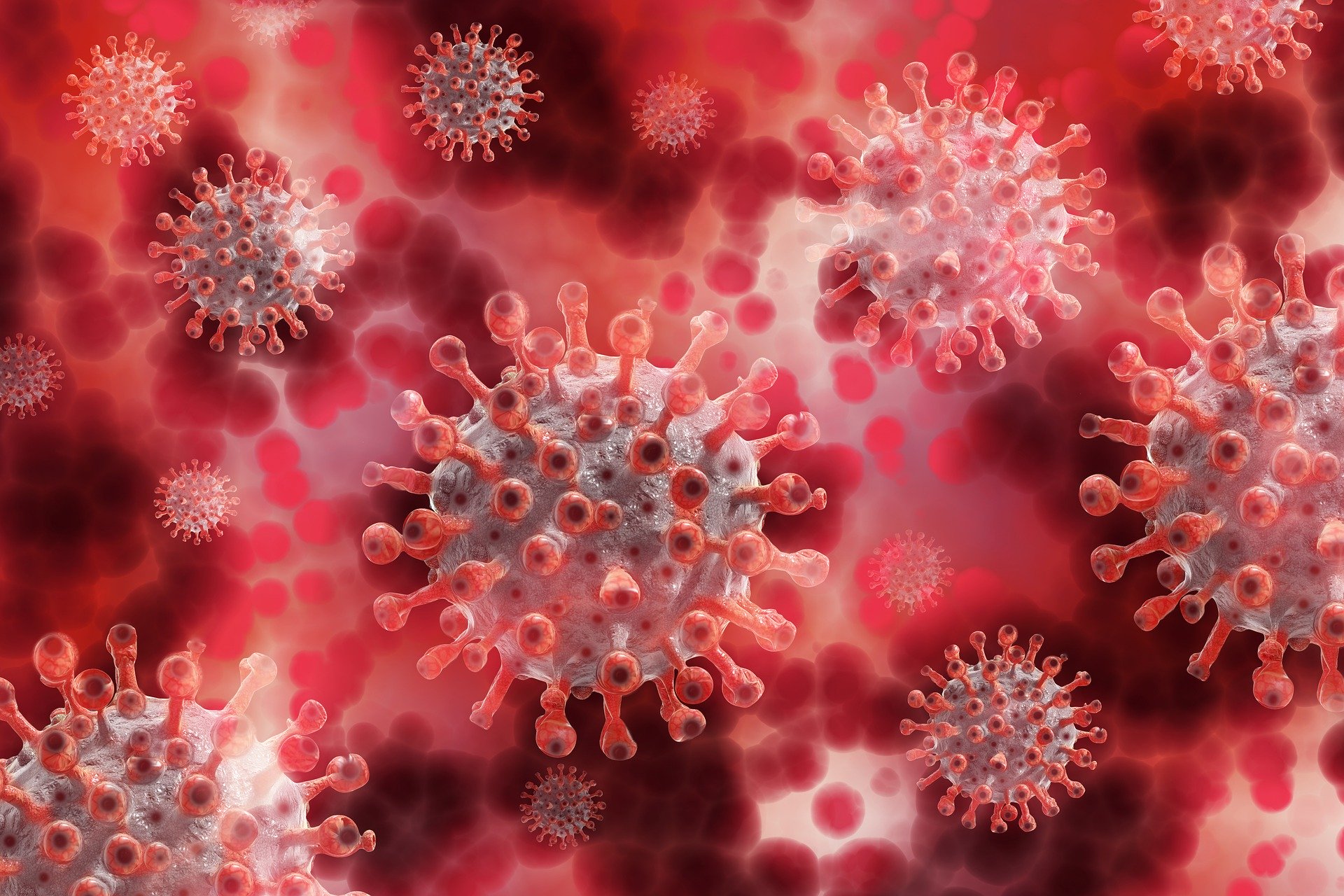He said the new mutation of Delta Plus variant, the K417N, has been associated with immune escape, or evasion, that leaves it less susceptible, or more immune, to the vaccine or any form of drug therapy.
The additional mutation called K417N which could become a “variant of concern” if unchecked, said AIIMS Chief Dr Randeep Guleria
The Delta Plus variant, a mutated version of the more aggressive B.1.617.2 strain that drove the second wave of infections in India, is undergoing additional mutation called K417N which could become a “variant of concern” if unchecked, said AIIMS Chief Dr Randeep Guleria, adding that India needs to learn from the UK where the said variant is causing a surge in cases.
Dr Guleria said India could see a faster surge if aggressive Covid-appropriate behaviour is not followed. He also insisted on aggressive surveillance to guard against any spike in the Covid cases following unlocking in parts of the country.
[expander_maker id=”1″ more=”आगे पढ़े ” less=”Read less”]
“Delta plus is a variant which is of same lineage as Delta variant, with a slight change as there is one more mutation found, which could be a cause of concern because this mutation, the K417N, is something which may change the virus to some extent as far as its infectivity is concerned… What we need to do is observe. Currently, the WHO has said that this is a variant of interest but it could become a variant of concern because currently the number of cases is less. Will this Delta plus again become the dominant variant that is something that we need to observe over the next few weeks,” said Dr Guleria in an interview to NDTV.
The B.1.617.2 variant is characterised as being highly infectious. The spike protein is what helps the virus enter and infect human cells, and the K417N mutation has been associated with immune escape, or evasion, that leaves it less susceptible, or more immune, to the vaccine or any form of drug therapy.
“We don’t need to take this virus casually. We need to understand this virus is changing and changing to survive and infect more and more people, therefore we have to be aggressive and try and be ahead of the virus. Vinod Scaria, another CSIR-IGIB scientist, said the K417N variant was more frequent in Europe, America and other Asian countries.
[/expander_maker]




















